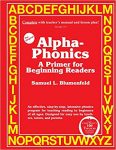Part 2: Homeschooling and the Question of Socialization Revisited
This is a repeat of a Series posted in 2019.
Homeschooling Rising Into the Twenty-First Century:
ALPHA-PHONICS Blog Editor Note: This an 11 part series of papers on the status of Homeschooling in the US. This is part 2. Remaining parts will be posted shortly. The study was conducted under the auspices of Vanderbilt University Peabody Journal of Education: Issues of Leadership, Policy and Organizations.
 Homeschooling and the Question of Socialization Revisited
Homeschooling and the Question of Socialization Revisited
Peabody Journal of Education: Issues of Leadership, Policy, and Organizations, Vol. 88, No. 3
Richard G. Medlin, Stetson University
ABSTRACT
This article reviews recent research on homeschooled children’s socialization. The research indicates that homeschooling parents expect their children to respect and get along with people of diverse backgrounds, provide their children with a variety of social opportunities outside the family, and believe their children’s social skills are at least as good as those of other children. What homeschooled children think about their own social skills is less clear. Compared to children attending conventional schools, however,  research suggest that they have higher quality friendships and better relationships with their parents and other adults. They are happy, optimistic, and satisfied with their lives. Their moral reasoning is at least as advanced as that of other children, and they may be more likely to act unselfishly. As adolescents, they have a strong sense of social responsibility and exhibit less emotional turmoil and problem behaviors than their peers. Those who go on to college are socially involved and open to new experiences. Adults who were homeschooled as children are civically engaged and functioning competently in every way measured so far. An alarmist view of homeschooling, therefore, is not supported by empirical research. It is suggested that future studies focus not on outcomes of socialization but on the process itself.
research suggest that they have higher quality friendships and better relationships with their parents and other adults. They are happy, optimistic, and satisfied with their lives. Their moral reasoning is at least as advanced as that of other children, and they may be more likely to act unselfishly. As adolescents, they have a strong sense of social responsibility and exhibit less emotional turmoil and problem behaviors than their peers. Those who go on to college are socially involved and open to new experiences. Adults who were homeschooled as children are civically engaged and functioning competently in every way measured so far. An alarmist view of homeschooling, therefore, is not supported by empirical research. It is suggested that future studies focus not on outcomes of socialization but on the process itself.
ABOUT THE AUTHOR
Richard G. Medlin, Ph.D., is a Professor of Psychology at Stetson University in DeLand, Florida, where he has taught since 1981. He has been conducting research on the cognitive and social development of homeschooled children since 1993.
The Publishers of ALPHA-PHONICS are pleased to present this series of studies on the status of Homeschooling in the US. For the past 36 years many Homeschooling Families have chosen ALPHA-PHONICS to be their resource to teach reading to their children. Find out why below:

 Alpha-Phonics
Alpha-Phonics The Alphabet Song!
The Alphabet Song! Water on the Floor
Water on the Floor Alpha-Phonics the Book on CD Rom
Alpha-Phonics the Book on CD Rom Blumenfeld Oral Reading Assessment Test
Blumenfeld Oral Reading Assessment Test How To Tutor
How To Tutor How To Tutor Cursive Handwriting Workbook
How To Tutor Cursive Handwriting Workbook